
An oncology nurse shares advice for avoiding exhaustion and soreness when administering subcutaneous injections.

An oncology nurse shares advice for avoiding exhaustion and soreness when administering subcutaneous injections.
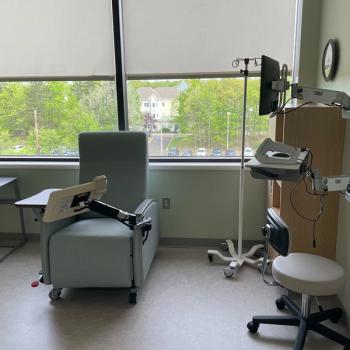
Infusion bays designed with nurse input provide patients the choice between privacy and community while allowing support from loved ones.

Nurse practitioners and physician assistants can advocate to play a number of roles in oncology research, including primary investigators.

Providing education about patients’ diseases was difficult, according to 32% of registered nurses and 29% of infusion nurses.
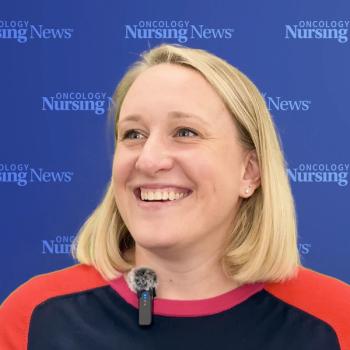
Danielle Fournier, DNP, APRN, AGPCNP-BC, AOCNP, discusses the role of oncology nurses in genomic testing.

Tara Sweeney, BSN, RN, OCN, CHPN discussed best care for the health and well-being of a person across all stages of their cancer survivorship.

Practicing at top of licensure can create opportunities for oncology APPs to engage with patients and other providers in new ways.

Working with patients in new contexts can provide meaning for oncology PAs, potentially reducing burnout, according to Eric Tetzlaff, MHS, PA-C, DFAAPA.

Documentation is especially important for nurse practitioners in cancer research and can lead to improved patient recruitment, says an expert.

Rates of pay, bonus pay, and changes to funding for continuing education were not significantly linked with burnout rates.
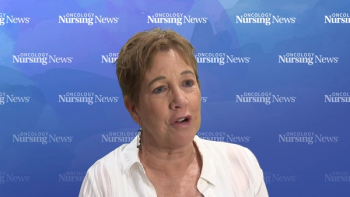
Debriefing after patient loss, supporting patients at the end of life, and finding outlets outside of work can help oncology nurses avoid burnout.

Seth Eisenberg, ASN, RN, OCN, BMTCN discussed the results of a real-world trial of Splashblocker, a toilet seat cover designed to mitigate exposure to toxins.

Oncology nurses play a key role in advocating for metastasis-directed therapy in prostate cancer.
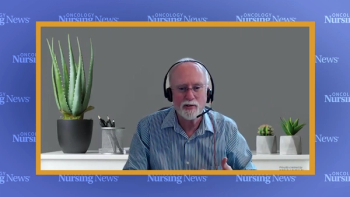
Seth Eisenberg, ASN, RN, OCN, BMTCN, explained his research on a toilet cover for oncology nurses to potentially reduce exposure to infectious pathogens and hazardous drugs.

While ambient particle levels differed by HEPA filter status, Splashblocker significantly reduced particles emitted from toilet plume aerosols regardless.
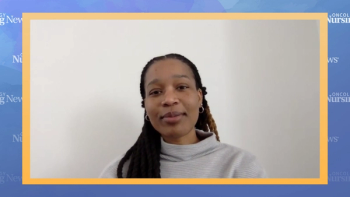
Working with multidisciplinary teams and educating patients are key to treating patients with cancer while navigating newly approved treatments.

Working with interdisciplinary teams and nurse navigators to coordinate care across specialties is a facet of oncology nursing that may be overlooked, says an expert.

Jessie Desir, PhD, RN, AMB-BC, OCN, discussed the need for awareness about cancer subtypes and their prevalence in certain populations.

Although participants in the study had greater rates of nonadherence postintervention, those who reported nonadherence at baseline saw some increase in adherence.

Staying up to date with data from trials and information from organizations dedicated to cancer research is crucial for oncology nurses and APPs.


Oncology nurses and APPs play a key role in educating patients on BREAKWATER study findings and their impact on BRAF-mutant CRC treatment.

Patients who receive certain cancer treatments are at greater risk of secondary malignancies and must be educated accordingly.

Hazards of the LA wildfires necessitate awareness that first responders and those central to the fires may be at risk for developing cancer.

NCCN guidelines now recommend ctDNA testing for MRD assessment for patients with PET-positive DLBCL after treatment.

The FDA has released draft guidance with recommendations on tissue biopsies in clinical trials for adults and children.

This case demonstrates the pivotal role of a cohesive multidisciplinary team in navigating the complex care of oncology patients from diagnosis, treatment, and posttreatment surveillance.

New guidelines for basal cell and squamous cell carcinoma provide detailed criteria for diagnosing, staging, IGRST, and follow-up, among others.
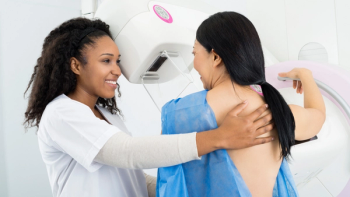
Increased use of consultations, breast MRIs, genetic counseling, and other testing in high-risk patients were a direct result from nurse-led high risk referral protocols.

Advanced practice providers with independent chemotherapy prescribing privileges reported positive responses related to readiness, confidence, and satisfaction.